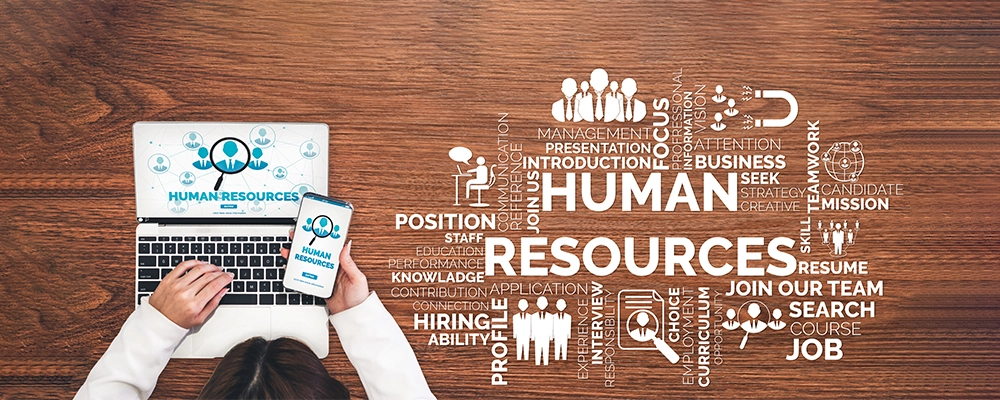Blogs
Services
Simplifying HR Management with HRMS: A Beginner's Guide
Nov. 17, 2023

Human Resource Management System, commonly known as HRMS, is a powerful tool that streamlines and simplifies various HR processes within an organization. Whether someone is an HR professional, a business owner, or just someone curious about how companies manage their workforce, this blog will break down HRMS in simple terms to help understand its importance and benefits.
What is HRMS?
The Human Resource Management System or HRMS is a software program created to make an organization's human resource procedures more efficient and straightforward. Consider it the one-stop digital HR center, where all duties, activities, and information of HR are gathered in one convenient location.
Key Features of HRMS
- Employee Data Management: HRMS serves as a digital storage for a wealth of employee data, from basic personal information to job histories, performance records, and more.
- Time and Attendance Tracking: Forget the hassle of manual time-tracking; HRMS automates the process, accurately recording working hours, leaves, and attendance. This results in precise payroll processing and fewer errors.
- Payroll Management: HRMS automates the calculation of payroll, tax deductions, and direct deposits. As a result, employees can count on timely and accurate paychecks.
- Recruitment and Onboarding: It streamlines the entire recruitment process, from posting job openings to managing candidate applications. Onboarding new employees becomes a breeze with digital forms and document management.
- Performance Evaluation: Organizations can set up performance appraisal systems, track employee progress, and schedule regular performance reviews, all facilitated by HRMS.
- Training and Development: It simplifies the tracking of employee training and development programs, ensuring that the workforce possesses the skills required for success.
- Benefits Administration: Managing employee benefits, such as health insurance and retirement plans, can be a complex undertaking and simplifies this process, ensuring that employees receive the benefits are entitled to.
- Data Security: Safeguarding sensitive employee information is a top priority. HRMS systems often include robust security measures to protect this valuable data.
Benefits of HRMS
With a firm understanding of what HRMS is and its key features, let's delve into the group of benefits it offers:
● Efficiency: HRMS reduces the need for manual data entry and paperwork, saving both time and the risk of costly errors.
● Accuracy: Automated processes, significantly minimize the chances of miscalculations in payroll and other HR tasks.
● Compliance: HRMS helps organizations stay compliant with labor laws and regulations, reducing the potential for legal risks and costly fines.
● Employee Self-Service: It often includes employee self-services portals, allowing employees to access their information, request leave, update personal details, and more, all without needing direct HR intervention.
● Data Insights: HRMS can generate detailed reports and analytics, providing valuable insights into workforce trends and performance. This data empowers organizations to make informed decisions.
● Cost Savings: While implementing HRMS may involve an initial cost, it frequently results in long-term savings due to increased efficiency and reduced administrative overhead.
● Time Savings: HRMS automates repetitive tasks, freeing up HR professionals to focus on strategic HR initiatives and employee engagement.
● Scalability: It can grow alongside the organization, accommodating increasing employee numbers and evolving HR requirements.
● Better HR Decision-Making: With accurate and up-to-date data readily available, HR professionals can make well-informed decisions regarding hiring, promotions, and workforce planning.
The Importance of HRMS in Modern Business
Human Resource Management System, commonly known as HRMS, is a powerful tool that streamlines and simplifies various HR processes within an organization. Whether someone is an HR professional, a business owner, or just someone curious about how companies manage their workforce
